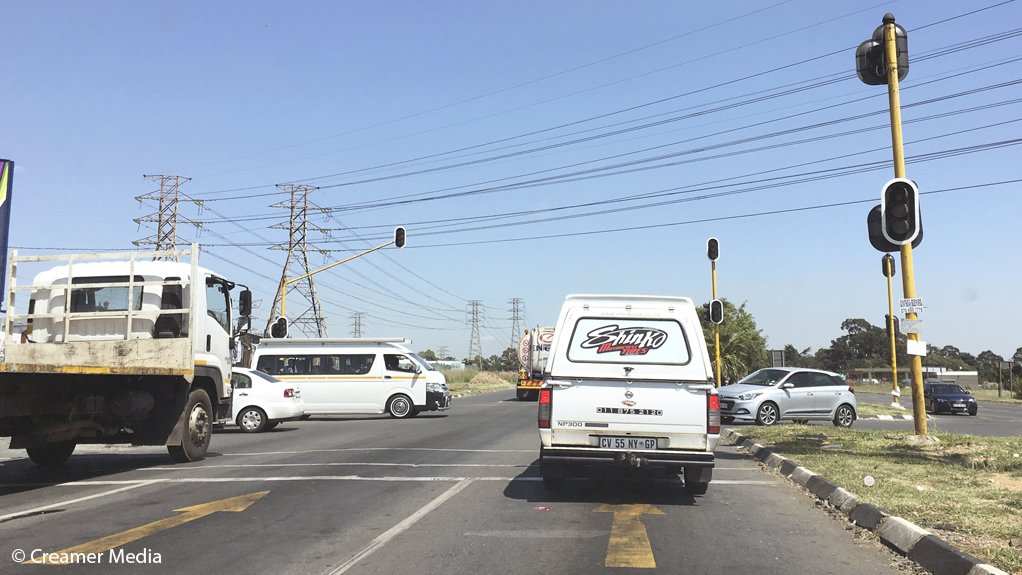The country’s traffic signals are currently in a dire state and various factors need to be considered to resolve this, Innovative Transport Solutions MD Jan Coetzee said during the South African Transport Conference, in Pretoria.
He pointed out that the operation or lack thereof of traffic signals was an indicator of the broader state of transport infrastructure, which is "woeful" and deteriorating.
Coetzee noted that many cities were experiencing similar problems – the impact of loadshedding, vandalism and theft, and high operations and maintenance costs – in keeping traffic signals operational.
He pointed out that, in some instances, it had become too costly to keep replacing the damaged or stolen traffic lights.
The lack of operational traffic signals, either as a result of power outages or vandalism and theft, was contributing to increased congestion on roads and freeways, with vehicles often being caught up in long queues on freeway offramps and the freeways themselves.
The impact of loadshedding is also exacerbated by theft. As solutions are deployed to deal with the former, this infrastructure also becomes vulnerable, such as battery backups being stolen.
Coetzee said solar-powered traffic signals are not a silver bullet solution, given that this infrastructure is also targeted by criminals, and that it is not always easy and feasible to install in areas that have a solid grid connection. Rather, it should be pursued where applicable, he noted, such as in rural areas without reliable grid connections, for example.
Another challenge is the lack of requisite skills at municipalities to design and maintain traffic lights.
Moreover, Coetzee said the country had unnecessarily high standards for its traffic signal designs. He said that while this was initially undertaken to engender safety, it now needed to be reconsidered, with a more appropriate approach being neccessary.
Meanwhile, there was also limited compliance by motorists and pedestrians with traffic signals, Coetzee pointed out.
He added that, at night, many motorists applied a ‘stop and go’ approach to traffic lights, given that they were at a high risk of being hijacked if they remained stationary at red traffic signals in certain areas. Coetzee emphasised that a solution was needed to ensure drivers were not in violation of the law but also not placing their lives at risk.
Coetzee pointed out that bus rapid transit signal heads had also been implemented in several areas, despite there being no buses running. This creates a further culture where traffic signals are ignored and/or disrespected by motorists, he pointed out.
Coetzee said funding of traffic signals was inadequate, with this used, for example, for maintenance. He pointed out that private developers were required to build new traffic signals; however, the existing ones were not being maintained.
With these myriad challenges, Coetzee suggested that there needed to be sharing of experiences, pooling of knowledge, and effective use of funding to begin to tackle it.
Exploring the way forward, suggestions included recognising the functions at all levels (national, provincial and municipal); increased funding allocation; stabilisation of human resources; increased cooperation between municipalities to share and manage functions in a more uniform manner; addressing supply chain management challenges; and constant reviewing of standards and requirements.
Moreover, it was noted that currently, maintenance was largely reactive and it should instead be done proactively.
*The South African Transport Conference is being held from July 10 to 13.
EMAIL THIS ARTICLE SAVE THIS ARTICLE ARTICLE ENQUIRY
To subscribe email subscriptions@creamermedia.co.za or click here
To advertise email advertising@creamermedia.co.za or click here











